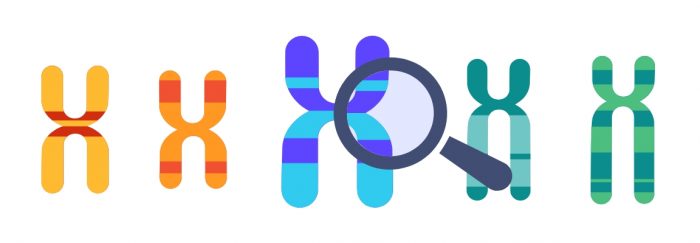Mental health defines general well-being in the way an individual behaves, thinks or regulates their feelings. When these patterns change and have a negative impact on this person’s behaviour in maintaining personal relationships, family, work or other activities, we are talking about a mental health disorder.
There has been a lot of talk about mental health lately. One of the reasons is that it is being considered a side effect of the covid-19 pandemic in our society. Quarantine itself increased the likelihood of developing or worsening psychological disorders due to the absence of interpersonal communication and the reduced availability of psychosocial interventions.
It has been estimated, according to the Global Burden Disease (GBD), that the pandemic has led to a 27.6% increase in cases of clinical depression, and 25.6% increase in cases of anxiety disorders.
Recently, studies on mental health and the impact of genetics on mental health have increased and are helping to discover that genes can directly affect mental wellbeing.

Discover your genetic predisposition to mental health issues with a DNA test
DNA testing can be beneficial for those who want to know their general health status. However, it can be taken further as these complex studies analyse the genetic variants present in the body to provide information associated with diseases that influence mental health.
This means that, through a genetic test, it is possible to estimate whether the user has a higher or lower genetic probability of suffering from depression, bipolar disorder or other mental health-related problems. It should be noted that research is constantly evolving, and it is for this reason that tellmeGen periodically updates its results free of charge as the scientific community publishes new findings.
In addition, tellmeGen DNA test results also provide information on drug metabolism, efficacy and possible adverse effects. These include antidepressants such as Escitalopram, Citalopram, Sertraline or Paroxetine. This is possible because the different proteins responsible for the transport or correct absorption of these drugs are determined by our DNA.
Knowing this information beforehand, health professionals can help patients manage their emotions, protect them against symptoms of depression or other mental illnesses that would hinder their physical and mental wellbeing, as well as define the treatment according to their genetic information to guarantee its effectiveness and avoid possible adverse effects.
How does DNA testing work?
Due to the increase of studies in this field, the number of known genetic variants associated with mental illnesses has increased. Based on these studies, tellmeGen has developed several updates using the imputation method in order to further narrow down the DNA test results.
Taking a DNA test is easy and affordable, as it only requires a saliva sample and is affordable for all budgets. The sample is analysed by the complex study mentioned above and a team of doctors and other professionals are responsible for producing a detailed report so that the user can understand the scope of the results.
Genetic vs. environmental factor
The importance of the environmental factor in mental health problems should be emphasised, as lifestyle, emotional management and day-to-day situations can increase or decrease the risk of developing mental health illnesses.
Mental illness tends to be complex and multifactorial. A person without any genetic predisposition may develop a psychological disorder because of the environment in which he or she develops. However, it is well known that, for example, the existence of family members with mental illness is a risk condition for developing mental illness due to heritability.
What mental health reports will you get from tellmeGen?
In short, the Advanced DNA kit includes reports on predisposition to complex illnesses such as depression or bipolar disorder, as well as pharmacological compatibility to antidepressants, such as the antidepressant mirtazapine.
In addition, you will also have access to much more information about well-being, ancestry and personal traits, as well as access to the DNA Connect service which allows you to meet and chat with genetic family from all over the world who belong to the tellmeGen database and have agreed to participate in the service.
Can these reports be used by any health professional?
tellmeGen offers you a personalised consultation service so that you can understand the results and, if necessary, we invite you to share this data with your healthcare professional, who can use our reports to help you develop a plan and manage your health in the most effective way possible.



